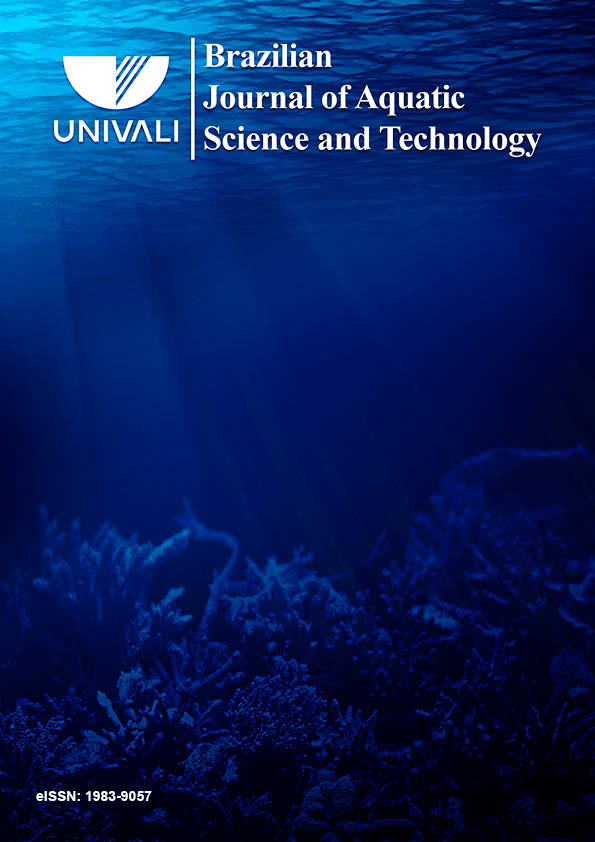Characterization of acidophilic bacteria related to Acidiphilium cryptum from a coal-mining-impacted river of South Brazil
DOI:
https://doi.org/10.14210/bjast.v20n2.7857Resumen
Three acidophilic bacteria were isolated from water and sediment samples collected at a coal mining-impacted river, Rio Sangão, located in the city of Criciúma, Santa Catarina state, in south Brazil. These microorganisms were isolated in acid media and were phylogenetic related to the species Acidiphilium cryptum by its 16s rRNA gene sequences, although they differ from this species in the assimilation of some carbon sources. The optimum and the maximum pH for growth of all strains were nearly 3.0 and 5.0-6.0, respectively. Two of the strains were slightly more acidophilic, with the minimum pH for growth of 2.0. All strains also tolerate the four tested metals (Ni, Zn, Cu and Se) at variable concentrations, with LAMA 1486 being the most metal-resistant strain. These bacteria may belong to different ecotypes of A. cryptum, or even represent new species in the genus. Besides they bear characteristics that make them useful in the development of bioremediation process, for the treatment of sites contaminated with multiple toxic metals, including coal mining drainageDescargas
Publicado
2017-03-24
Número
Sección
Artigos
Licencia
Autores que publicam nesta revista concordam com os seguintes termos:
- Os Autores mantém os direitos autorais e concedem à revista o direito de primeira publicação, com o trabalho simultaneamente licenciado sob a Creative Commons Attribution License que permitindo o compartilhamento do trabalho com reconhecimento da autoria do trabalho e publicação inicial nesta revista.
- Autores têm autorização para assumir contratos adicionais separadamente, para distribuição não-exclusiva da versão do trabalho publicada nesta revista (ex.: publicar em repositório institucional ou como capítulo de livro), com reconhecimento de autoria e publicação inicial nesta revista.
- Autores têm permissão e são estimulados a publicar e distribuir seu trabalho online (ex.: em repositórios institucionais ou na sua página pessoal) a qualquer ponto antes ou durante o processo editorial, já que isso pode gerar alterações produtivas, bem como aumentar o impacto e a citação do trabalho publicado.

